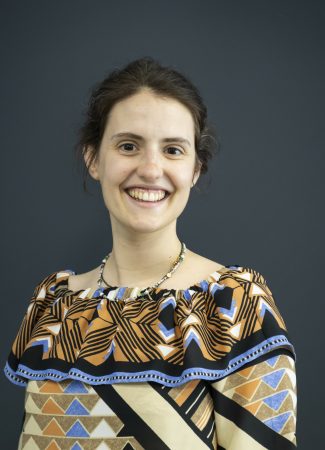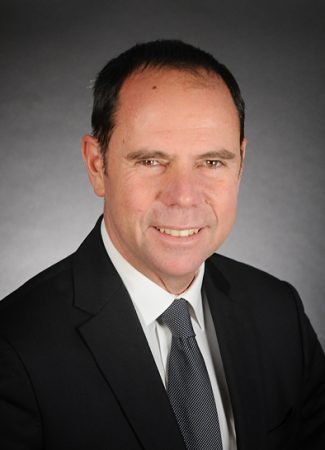Starting last December, a capacity market has been introduced in France. This compensation of generation capacities by peak period consumers, planned since 2010 by the NOME [New Organisation of the Market for Electricity] law, was granted by Europe on the express condition that cross-border players could participate. Article 4.3 of the directive on security of supply (2005/89/CE) does indeed stipulate that ‘the Member States shall not discriminate between cross-border contracts and national contracts’.
Such cross-border participation in a European capacity compensation mechanism would be a first (the British capacity mechanism only provides for interconnection participation as of the 2019 supply). Despite this, last month, RTE [Electricity Transmission Network] diligently launched a consultation on cross-border participation in the French capacity market, providing for an application starting from the 2019 supply year. Should we risk being the guinea pigs?
A commitment to the European integration of capacity compensation mechanisms…
European efforts for market integration have thus far concentrated on safety and economic efficiency in the short term: the day-ahead market, the intraday market and, more recently, the reserve mechanism market (see our article on this subject).
Capacity compensation mechanisms, when envisaged, entail very little coordination, relying almost entirely on the mix of domestic generation, with the primary purpose of maintaining a reliable, autonomous electrical system – an approach that has been deeply undermined by the European Union on the grounds that it appears to contradict a regional approach to security of supply. The Commission is also planning the strict framework for capacity mechanisms, with particular designs to condition them according to the results of the adequacy studies conducted at the European level by the European Network of Transmission System Operators for Electricity (GRT) [ENTSO-E].
For the EU, the mechanisms ensuring generation adequacy should be open to all capacities that can effectively contribute to the level of reliability required, including the capacities of other Member States. A principle which, nevertheless, will not apply before 2019 to the capacity mechanism that has been in force in the United Kingdom since…2013.
Technical hurdles
If the CM models implemented thus far in the EU do not allow for explicit cross-border participation, it is partly because in order to include the generation of a neighbouring system in a capacity mechanism, the country’s transmission system operator setting up the capacity market should ensure that, in conditions of scarcity, foreign resources are in a position to fulfil their physical supply commitment in relation to the capacity mechanism. RTE is more realistic as regards such explicit participation: foreign resources would only have to demonstrate their availability during times of scarcity.
Indeed, as IRENA notes, the majority of the laws on electricity and national network codes in force in the Member States still contain clauses maintaining that exports to other countries will be interrupted in the event of a domestic supply emergency. Removing this first barrier requires a coordinated modification of the network codes and national (and regional) operating procedures by the TSOs.
Questions regarding the cost to the French consumer
The transition from an implicit participation model of cross-border means to one that is explicit should not change the clearing price, as the supply/demand equilibrium should be preserved [the excess in supply must be offset by an excess in demand linked to the increase of the safety coefficient].
A sensitive parameter could be the safety coefficient of 93%, which was applied to cross-border capacities in order to integrate the implicit contribution of interconnections at the risk of failure. At constant capacity price, if explicit cross-border participation raises this safety coefficient from 93% to 98%, the cost of the capacity mechanism for the French consumer would increase by 5%. However, a portion of the supplementary income generated by the mechanism will be transferred from French players to cross-border players.
In short, part of this income will be recovered by the network operator via the cross-border transport capacity reservation tickets. If these tickets pick up a significant portion of the capacity price, consumers could recover their costs linked to CM.
A multi-layered mechanism
However, the problem is even more linked to the disparity in European energy policies, between mechanisms for redistribution or nuclear energy access, heterogeneous subsidies of renewable energies depending on the Member States, electrical market differentials (France-Italy or France-Spain spread) or terms of access for interconnection access capacities. How do we go about coordinating such different price signals to ensure network security at the lowest financial and environmental cost?
Yet the experience of capacity markets has shown that the overlapping of support arrangements introduced market distortions and led to some big surprises. Take New England as an example, which found itself obliged to set up a ‘threshold’ participation price for its capacity market, aiming to prevent unprofitable or subsidised (renewable) capacities from distorting market prices by setting a price level below which new entrants must demonstrate their costs or withdraw from the capacity auction. More recently, consider the United Kingdom, where, in December 2016, the CCGTs were outclassed at the T4 auction by small open-cycle units, pulling prices down well below expected levels and causing polluting emissions to rise!
Some beautiful contemplation in perspective
Cross-border participation in the capacity mechanism, while very limited in terms of volume by interconnection, will thus further complicate the readability of a capacity market price signal in France that is already very opaque. However, above all, it will build a link between European investment signals. At a time when other countries, including Germany, are considering turning towards a ‘strategic’ reserve mechanism (i.e. supporting the only means of production already established), ensuring the consistency of all of these mechanisms and their convergence towards a sustainable European energy mix will soon be a balancing act.







